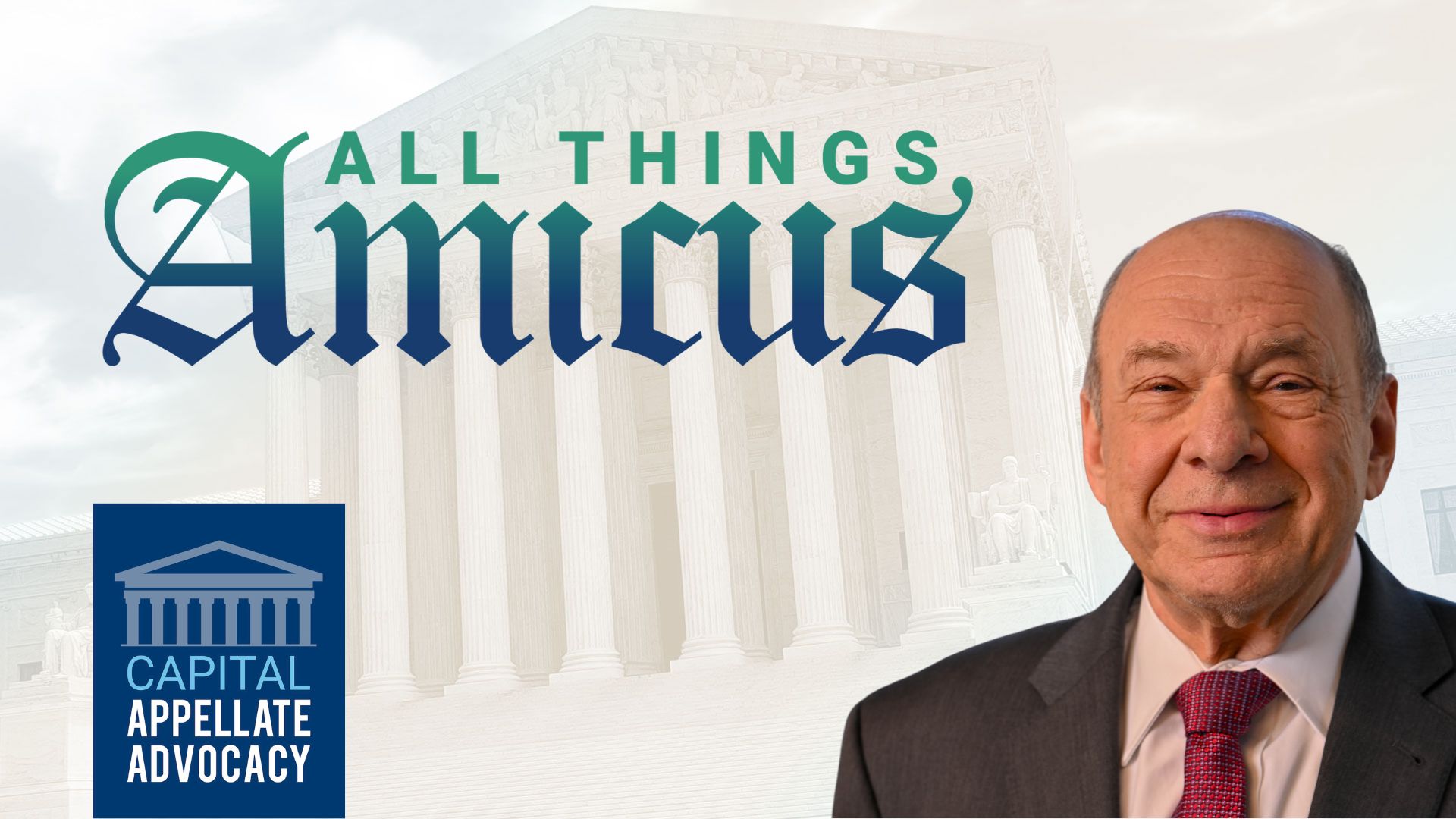On November 13, 2023, the Justices of the Supreme Court of the United States issued a self-enforcing Code of Conduct applicable to themselves.
The Code of Conduct section titled Disqualification includes the following statement:
“Neither the filing of a brief amicus curiae nor the participation of
counsel for amicus curiae requires a Justice’s disqualification”
This statement reflects the fact that numerous nonprofit and other organizations file a multitude of amicus briefs at both the petition and merits stages with the assistance of members of the Supreme Court Bar. Disqualification of one or more Justices from hearing a particular case merely because of the filing of an amicus brief—for example, due to some prior professional relationship between a Justice and amicus counsel— would be impractical.
Note that Federal Rule of Appellate Procedure 29(a)(2), as amended in 2018, states as follows:
When Permitted. The United States or its officer or agency or a state may file an amicus brief without the consent of the parties or leave of court. Any other amicus curiae may file a brief only by leave of court or if the brief states that all parties have consented to its filing, but a court of appeals may prohibit the filing of or may strike an amicus brief that would result in a judge’s disqualification.
(Emphasis added)
The Advisory Committee notes accompanying Rule 29(a)(2), as amended, provides a further explanation:
The amendment to subdivision (a)(2) authorizes orders or local rules that prohibit the filing of or permit the striking of an amicus brief if the brief would result in a judge’s disqualification. The amendment does not alter or address the standards for when an amicus brief requires a judge’s disqualification.
The proviso in the Supreme Court’s Code of Conduct that the filing of an amicus brief does not require a Justice’s disqualification is compatible with Rule 29(a)(2). Both ensure that the filing of an amicus brief will not result in disqualification.
The Advisory Committee on Appellate Rules, which advises the U.S. Judicial Conference’s Committee on Rules of Practice and Procedure, is currently considering an amendment to Rule 29 that would eliminate the requirement to obtain the parties’ consent, or leave of court, to file an amicus brief in a federal court of appeals. I proposed this amendment on behalf of the DRI Center for Law and Public Policy to align Rule 29 with the Supreme Court’s elimination of the amicus consent/leave requirement from its own Rule 37, effective January 1, 2023.

